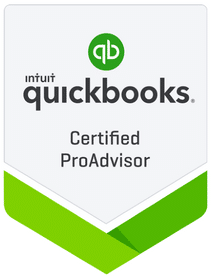- Patrick Roney
- (877) 503-8607
Follow Us :
Follow Us :
Proledge
April 14, 2025
For many business owners, taking care of their business is like taking care of a baby. If you want a successful business, you need to always pay attention to the details. A business that is just beginning needs a solid foundation onto which it can grow. A grown business needs constant support, so it can maintain how much it grew, but also to grow further. Finances are one of the most important elements of a business, small or big. You always need to make sure that every penny is going to the right place. A small business needs money to grow, a big business needs money to keep working.
Having money is a need in every sphere of life, even if you are not a business owner. But, especially when you have a business, you need someone to ensure that everyone is going according to plan. Safety, accuracy, and efficiency are only three of the values that should be present in your business. Now, who can help you with this kind of job? A bookkeeper. But, what bookkeepers do can be a mystery to some. This is why, in this article, we are going to discuss what is a bookkeeper. Do you need one for your business? Let’s see!

To put it simply, a bookkeeper is the person who manages the financial transactions in your business. It’s not one of those jobs that you can see the impact of, but it’s surely one of the most important ones. A bookkeeper will organize everything that you already have, and manage all of the new things that come. This helps to easily identify any receipt or bill if needed, but to also keeps track of payments or other such things. What they do is:
These are only some of the tasks a bookkeeper can do for you. As you can clearly tell, all of these are important tasks that need to be done correctly.
If you are here for a bookkeeping description, you clearly came to the right place! The responsibilities of a bookkeeper are not exactly light work. Financial transactions, which include purchases and expenses, payroll transactions, sales and revenue, and many more, need to be tracked accurately. Without accurate and clear data, you cannot achieve a realistic financial plan for your business. There must be someone who makes sure that every person is paid on time, that invoices are sent to customers, and that all transactions are accounted for. With just one receipt that is not tracked, or one bill that is not paid on time, many problems can occur.
Tax filing is another thing that many people don’t know how to do correctly. What bookkeepers do is ensure accuracy. They make sure that you don’t pay a penny more than you should. Legal compliance is an essential element if you want a business that is safe and legal for both you, your employees, and your clients. These types of things can be challenging for someone who doesn’t know what they are doing. And, if you are thinking of doing it yourself, without any bookkeeping experience and expertise, don’t even think about it. You would be taking an enormous risk, and it’s not worth it. Peace of mind is more important than saving the money you would spend on a bookkeeper.
By tracking expenses, a bookkeeper can identify spending habits, unnecessary expenses, or a multitude of similar things. This can help reduce unnecessary spending, and to allocate all of your resources effectively. Planning for the future is an essential step when you have a business; but you cannot plan anything if you don’t know everything about your financial situation. You need to know how much you spend, and on what. A professional bookkeeper will make all of this work for you. With the help of an organization, reports of all kind (e.g. cash flow reports), and accuracy, you know exactly what you can afford to do and what not.
You can contact us anytime if you have questions or encounter a problem with your bookkeeping program.
It’s safe to say that a bookkeeper will only improve the way that your business works right now. With all of the financial records organized, you can easily have access to information about your income, your expenses, and your profit. How else does an organization help? Tax filing and financial planning, which can be two very dreadful tasks, will now be easy. A steady cash flow will be maintained thanks to the accurate management of invoices and financial records. This is how you avoid cash shortages, and late payments!
If those benefits didn’t convince you, think of compliance with financial regulations. This can help you avoid any legal issues or financial penalties. Everyone knows that it’s not easy to work with numbers. One wrong number, and the whole calculation is gone. If you mess up a letter, people will be able to understand what you wanted to say. But, if you mess up a number, you might receive a fine on your doorstep. And, this is exactly why you need someone who knows what they’re doing. What do bookkeepers do? They ensure that your business is working effectively and accurately.
Bookkeepers can also help you make informed financial decision; and their presence allows you to focus on the areas in your business that need your attention more. Bookkeeping is a job that’s done in the shadows, you won’t see your bookkeeper coming to you with the most creative idea ever, like someone working in marketing would, but a bookkeeper is worth at least as much, if not more, as everyone else in your office. Do you need this type of service? Contact us!

There are many skills that a professional bookkeeper should have; but some of the most important ones are:


Fill out the form below to sign up to our Blog Newsletter and we’ll drop you a line when new articles come up.

Bookkeeping and accounting are words that are used interchangeably by most people. It’s true that both of these are about the financial management of your business, but in different ways.

It’s that time again! The tax season is slowly but surely coming to an end and that means you can’t postpone it anymore. You’ve got to figure it out. We

There are lots of businesses that need to find efficient ways to keep track of their finances nowadays, and if you are a business owner, you have experienced this first-hand.

As we all know, automated means of running your business have started to become very popular recently due to all of the perks that it provides. This is not to

So you’re at that point in developing your small business where you’re looking into accounting solutions. If so, you might have started to wonder what’s the best bookkeeping software for

Welcome to bookkeeping 101, the place where we discover how to do bookkeeping effectively, accurately and easily. If you’ve started your small business already or if you’re on the verge
Bookkeepers.
Professional. Affordable.
ProLedge is a bookkeeping services firm.
Copyright © 2024 All rights reserved.